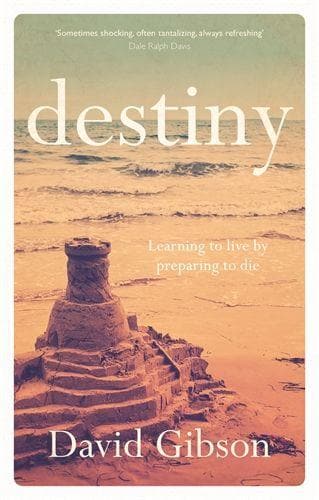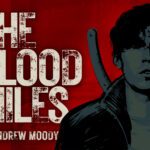Two years ago, My Year in Books reflected my excitement in finishing up university and starting work, with books focusing on themes such as productivity, ambition and getting things done.
This year, I’ve read books on life, death and mortality. These books discuss these pertinent issues with skills possessed by a scalpel-wielding surgeon—nuance, grace, and a healthy dose of realism.
Don’t read too much into the apparent shift in my taste in books! Do, however, read these books. They each offer a hopeful and tasteful insight into the perpetual human struggle; the grapple with death, boredom and meaninglessness, and the search for answers to the question: What makes a life worth living?
Destiny: Learning to Live by Preparing to Die by David Gibson
If there is only one book you pick up from this list, let it be this one. Gibson opens the book with this preface:
[Here] is why I wrote this book: I am ready to die …There is nothing about my own death, or the state of being dead, which distresses me …I can understand if you …find this way of thinking rather odd, morbid even. But I would like to change your mind.
Change my mind, he does.

Destiny: Learning To Live By Preparing To Die
David Gibson
Destiny: Learning To Live By Preparing To Die
David Gibson
Drawing on wisdom from the book of Ecclesiastes, David Gibson teaches us to live life backward: to take the one thing in the future that is certain—our death—and work backward when it comes to our priorities, goals, desires and decisions. If we do this, we’ll learn that only with a proper perspective on death can we find meaning and satisfaction in life.
Working through the book of Ecclesiastes, Gibson unpacks why and how he has come not to fear death, and why he thinks “only a proper perspective on death provides the true perspective on life.” (1) The “proper perspective” to have on death is to accept we will all face it. Our days are numbered in God’s hands (Jb 14:5), and one day he will end our lives here.
Gibson argues that living this way is the best way to live. It helps us to be humble and grateful for everything God gives us (Ecc 3:13), and stops us from wasting our life grounding our hope in things that are inherently uncertain—like our health, jobs or relationships.
Rather, amongst other things, we learn to put our hope in the character of the One who dictates, gives, and takes our lives. We learn to love the giver more than the gift.
This book induced multiple sighs of relief. Christians truly have the answer to life’s greatest problem—death. Gibson has helped me to appreciate the lamentations of the Teacher, who speaks sorrowfully about the futility of life under the sun.
Gibson has helped me to appreciate the lamentations of the Teacher, who speaks sorrowfully about the futility of life under the sun.
Simultaneously, he has also helped me to see God’s active hand in redeeming humankind, being our certain hope, providing for us daily, and ultimately, making a way out of futility and death through his Son.
This is Water: Some Thoughts, Delivered on a Significant Occasion, about Living a Compassionate Life, by David Foster Wallace
This short book is an adaptation of a commencement speech delivered by Wallace at Kenyon College in 2005. Wallace is known for his astute and humorous observations of everyday life. In this speech, he describes the monotony of the “day-to-day trenches of adult life” perfectly by telling a story of a trip to the supermarket (I won’t give any spoilers).
This book is brilliantly littered with ‘quotable quotes’ that you would not expect from a humanist philosopher. My favourite, which is both affirming and provoking, is where Wallace states:
Everybody worships. The only choice we get is what to worship. And the compelling reason for maybe choosing some sort of god or spiritual-type thing to worship … is that pretty much anything else you worship will eat you alive. If you worship money and things, if they are where you tap real meaning in life, then you will never have enough, never feel you have enough. It’s the truth. Worship your body and beauty and sexual allure and you will always feel ugly. And when time and age start showing, you will die a million deaths before they finally grieve you. (100)
…when time and age start showing, you will die a million deaths before they finally grieve you.
This speech helps me to see how everyone, even atheists (as Wallace was), can have a deep sense of frustration of life here and now. One that sounds very similar to the kind experienced by the Teacher in Ecclesiastes. It has helped me to consider ways in which all people have “heart longings”—longings that are placed by God on all people—and how we can sensitively bring the Christian story to bear on these yearnings.
A Woman is No Man by Etaf Rum
This is a fast-paced novel about violence, loss, and human dignity. It is a story that asks: Do some people deserve to live, and others do not?
Rum is an American-Palestinian author who takes us into the lives of a multi-generational Palestinian family, first living in Palestine, and later, in Brooklyn, New York. She tells the story through the voices of three women: Fareeda, Isra and Deya, and their respective upbringings, marriages and home lives.
Rum gives us an insight into the challenges of being an Arab woman: the ubiquitous presence of violence in marriages; the shadow of disappointment that crosses their family’s face when a female child is born; the sense of helplessness as the women pace around their living rooms, unable and unwilling to leave their homes without a male companion.
I finished this book over one weekend. The ending left me speechless. The book’s characters define, to me, what it means to be helpless, voiceless, and hapless. In their state of weakness, they embody the individuals we are told to look out for and defend: the widows, the oppressed, and the orphans (Isa 1:17).
The book’s characters …embody the individuals we are told to look out for and defend: the widows, the oppressed, and the orphans.
It is tempting to set this book aside as irrelevant in our postmodern day and age, but we should not. Violence in general, and gender-based violence in particular, remains a live issue. This book dealt with this issue deftly, informing my mind, tugging at my heartstrings, and igniting a sense of compassion and justice—even for people I have not met.
A Gentleman in Moscow by Amor Towles
On the opposite end of the “heart-wrenching” spectrum, this is a charming novel that opens with the sentencing of a Russian gentleman named Alexander Rostov, to life imprisonment at the Metropol Hotel, Moscow in 1922.
How exciting can such a story get? In short, very.
I fell in love with Towles’ characters, from the unflappable head-waiter Akady, to the serious and scientific Nina. And of course, to the gentlemanly and ever-kind Alexander.
It is a true skill of an author to create a rich and imaginative world within the confines of a Russian hotel, a setting within which I have personally never ventured.
You follow Alexander as he experiences love, loss, friendship, patriotism, treason, and camaraderie. As his hair thins out; as his enthusiasm for life ebbs and flows.
Although a few friends have commented Towles spends way too much time in world-building mode, I beg to differ. It is a book that takes perseverance, but one which yields rich dividends.
Can a life lived without luxury be the richest of all? I think Alexander Rostov shows us the answer is a resounding yes.
You’re Only Human: How Your Limits Reflect God’s Design and Why That’s Good News by Kelly M. Kapic
I am only partway through this book, and regard it as a textbook on what it means to be a limited and finite creature.
Kapic’s main point is that to be a limited, frail, short-sighted human is not sinful. It is the way God created us to be.
What I find fascinating is the topics Kapic canvasses. By the time you finish the book, you would have learnt:
- how the invention of clocks has shaped our understanding and expectations of how much to get done in a day;
- what Jesus’ real and physical birth tells us about how God views us, and;
- the answer to the burning question: I know God loves me, but does he like me?
Kapic approaches what seem to be far-flung and unrelated topics, dives into them, and seamlessly ties them to his big ideas of human finitude and creatureliness. I’m reading You’re Only Human slowly—it’s challenging rather deep-seated thoughts and expectations I have on myself and those around me.
So, there you go. The books that made my year. Books that will tinge my new year celebrations with a more acute sense of my own weakness, limitations and the things I have failed to achieve in 2022; but ones that provide comforting reminders of the God who sees all, knows all, and has done it all, for me.















